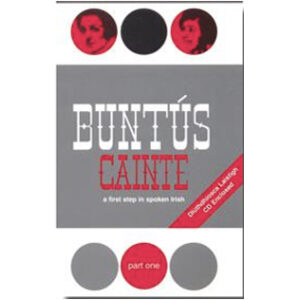Fáilte (Welcome) › Forums › General Discussion (Irish and English) › How to say “I wasn’t able to” using the copula and feidir
- This topic has 7 replies, 1 voice, and was last updated 9 years, 8 months ago by
Dáithí.
-
AuthorPosts
-
August 15, 2014 at 4:17 pm #36764
Dáithí
ParticipantI’m trying to figure out how to say “I wasn’t able to bring my homework.” Immediately my brain went looking at “is feidir” and then I hit a roadblock thinking of what the negative past tense for “is” is.
Would it be “Níor feidir liom tabhair(t?) m’obair tí?” Or do I have to use something like “Ni raibh mé álbalta a thabhairt m’obair tí?”
GRMA. Corrections welcomed.
August 15, 2014 at 6:15 pm #45420Cúnla
ParticipantD’fhág mé an obair baile sa mbaile. 😛
“Wasn’t able to bring my homework” is a bit weird, isn’t it? 😛 Wasn’t able to do it, maybe?
In any case, when you have the verbal noun and an object, the object comes first, as an obair baile a thabhairt liom = “to bring the homework with me.”
And in this case, the past tense of the copula would be níorbh fhéidir, as níorbh fhéidir liom an obair baile a dhéanamh = “I was not able to do the homework.”
August 15, 2014 at 9:51 pm #45421Lughaidh
ParticipantThe problem is that the copula has the same forms in the past and in the conditional. Níorbh fhéidir liom means both I couldn’t (conditional) and I wasn’t able.
Btw you can say “ní raibh mé ábalta / in ann / in inmhe”…
August 15, 2014 at 9:58 pm #45422Dáithí
ParticipantI was able to do the homework, but since I was running late at work I couldn’t stop at home to pick it up before coming to class – hence the need for “bring.”
And thanks to your help I think I understand the construction with féidir in the past tense.
Níorbh fhéidir liom an obair b(h?)aile a tabhairt.
Corrections welcomed.
August 15, 2014 at 10:19 pm #45423Lughaidh
ParticipantNíorbh fhéidir liom an obair bhaile a thabhairt.
but I’d add something after, because “tabhairt” means “to give” when there’s no context. If you want it to mean bring, you should add the name of the person or of the place you bring it to.
August 16, 2014 at 11:44 am #45424Dáithí
ParticipantThanks, it’s starting to become clear. So then to convey bringing:
“Níorbh fhéidir liom an obair bhaile a thabairt anseo.” or Ní raibh mé álbalta an obair bhaile a thabairt anseo.”
or, as I finally grasp Cúnla’s use of “liom” in the first response in this thread:
“Níorbh fhéidir liom an obair bhaile a thabairt liom.”
Follow up question: Why isn’t it “obair an bhaile?” I thought the rule was that when you have a definite article with a set of nouns, it comes before the second noun – the noun functioning as the possessor in this sentence. But is “an obair bhaile” idiomatic and so an exception?
Corrections welcomed and appreciated.
August 16, 2014 at 12:06 pm #45425Lughaidh
ParticipantThanks, it’s starting to become clear. So then to convey bringing:
“Níorbh fhéidir liom an obair bhaile a thabairt anseo.” or Ní raibh mé álbalta an obair bhaile a thabairt anseo.”
thabHairt (pronounced /ho:rt’/)
Follow up question: Why isn’t it “obair an bhaile?” I thought the rule was that when you have a definite article with a set of nouns, it comes before the second noun – the noun functioning as the possessor in this sentence. But is “an obair bhaile” idiomatic and so an exception?
it’s a set phrase, just as you say “homework” in English and not “home’s work” or “the work of the home” or whatever 🙂
August 16, 2014 at 1:19 pm #45426Dáithí
ParticipantGo raibh maith agat as do chuidiú. Tuigim anois.
-
AuthorPosts
- You must be logged in to reply to this topic.
